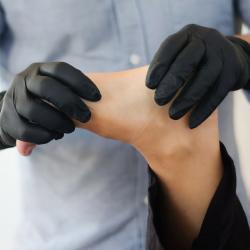Coping with Post-Acute Withdrawal Symptoms (PAWS): A Guide to Long-Term Recovery
For individuals recovering from addiction, the journey doesn't end with detox. In fact, it's often just the beginning. Many people experience what's known as Post-Acute Withdrawal Symptoms (PAWS), which can persist long after the initial withdrawal period. Understanding PAWS and learning how to cope with it is crucial for maintaining long-term sobriety.
PAWS typically occurs after the acute withdrawal phase, which is the immediate period of physical symptoms when the body is adjusting to the absence of the substance. While acute withdrawal symptoms usually last for a week or two, PAWS can persist for months or even years, depending on various factors such as the substance abused, duration of use, and individual physiology.
Common symptoms of PAWS include mood swings, anxiety, depression, irritability, fatigue, insomnia, and cognitive difficulties like poor concentration and memory problems. These symptoms can fluctuate in intensity and may come and go unpredictably, making them particularly challenging to manage.
So, how can individuals cope with PAWS and continue their journey towards recovery? Here are some strategies:
Education and Awareness
Knowledge is power. Learning about PAWS and understanding that these symptoms are a normal part of the recovery process can help individuals feel less overwhelmed and more empowered to cope.
Healthy Lifestyle Choices
Adopting a healthy lifestyle can significantly alleviate PAWS symptoms. This includes regular exercise, nutritious diet, adequate sleep, and stress-management techniques such as meditation or yoga. These practices not only improve physical health but also support mental well-being.
Seeking Professional Help
Don't hesitate to reach out for professional support. Therapy, counseling, or support groups can provide valuable tools and strategies for managing PAWS symptoms. A therapist can help individuals develop coping mechanisms and address underlying issues contributing to their symptoms.
Casa Serena is a women's drug and alcohol rehab center in Santa Barbara, Californi, that offers compassion and healing through a trauma-focused approach.
Medication Management
In some cases, medication may be necessary to alleviate severe PAWS symptoms such as depression or anxiety. Consulting a healthcare professional can help determine the appropriate medication regimen tailored to individual needs.
Avoiding Triggers
Identify and avoid triggers that may exacerbate PAWS symptoms or tempt a relapse. This could include certain people, places, or activities associated with substance use. Creating a supportive environment conducive to recovery is essential.
Engaging in Meaningful Activities
Keeping oneself occupied with fulfilling and enjoyable activities can distract from PAWS symptoms and provide a sense of purpose. Whether it's pursuing hobbies, volunteering, or spending time with loved ones, finding joy in life beyond addiction is crucial for long-term recovery.
Conclusion
In conclusion, coping with Post-Acute Withdrawal Symptoms (PAWS) is an integral part of the recovery journey for individuals overcoming addiction. By educating oneself, adopting a healthy lifestyle, seeking professional help when needed, avoiding triggers, engaging in meaningful activities, and practicing patience and persistence, individuals can effectively manage PAWS and continue progressing towards long-term sobriety. Remember, recovery is possible, and you're not alone in this journey.






